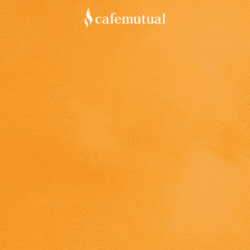 What are the key risks in the market currently?
What are the key risks in the market currently?
Global risks can emanate from the US Fed’s decision on interest rates and changes to China’s currency policy which can impact foreign investor flows in the near term.
What is your reading about the current state of the Indian economy? What global cues are you looking out for?
We are seeing mixed signals in the economy with certain industries recuperating while others still facing a lot of pressure, particularly the commodity businesses. Urban consumption demand is reasonably strong while rural is weak. Industrial capex is picking up albeit at a very slow pace and only in certain segments. Globally, demand recovery in China and movement of interest rates in the US will be important determinants for the markets.
How does India fare at this juncture vis-à-vis other emerging countries?
India is clearly better placed, benefiting from commodity prices in general and a stable political situation as compared to many emerging countries. The rupee has also held up considerably well versus some of the BRIC countries and this has further bolstered foreign investor confidence in the Indian economy.
Basic fund management strategies are more or less similar across fund houses. How difficult is to stand out from the crowd, when it comes to investment management?
Yes, a majority of the fund houses have been following look-alike strategies though there is growing recognition for differentiated products with well-defined underlying investment strategies. Given the crowded nature of the market, a differentiated strategy is likely to receive a lot of attention. However, it is important that the product truly stays true to its label. Thus, for example, if it is meant to be a long-term, high conviction, buy & hold strategy then the product should reflect the same.
Can active fund managers continue to beat benchmarks in future? Will there be challenges in generating alpha and finding the right stocks to beat indices, say five to ten years down the line?
Over a period as long as 5 to 10 years, I do not see why it should not be possible for well-run portfolios with sound investment decisions to beat their respective benchmarks. As far as we can see, identifying good quality stocks, backing them with adequate conviction in the portfolio (which a benchmark may not necessarily be able to like an active manager) and being patient with the investment decisions will still be key to alpha generation in the future as well. We don’t see that changing any time soon.
What were your notable mistakes and what did you learn from them?
There are a few important learnings from managing our active funds over the past three years: 1) Do not underestimate the competitive pressures on businesses in this digital era. 2) Avoid regulated businesses and be wary of regulatory changes in any business, 3) back your strongest ideas with the best possible allocation in the portfolio.
How do you generate ideas and what is your selection process before an idea gets added to the portfolio?
Our typical idea generation process is a simple two-step model of shortlisting businesses based on their past performance on key metrics, most importantly, Return on Capital Employed (ROCE) generated by that business and if that is sufficiently above the cost of capital. This becomes a good starting point to then understand if the business meets the requirements of our internal investment framework that we run by the acronym – QGLP – i.e. does the business satisfy us on its quality of business/management, growth prospects, longevity of competitive advantages and lastly, price.
Which is your favorite book and why you would recommend it to others?
‘Differentiate or Die’ - Survival in An Era of Killer Competition by Jack Trout is one of my recent reads. While it’s an old publication, I think the heightened competitive environment unleashed by the digital era today on a number of businesses makes this book very relevant. It provides good insights and interesting frameworks on how to assess the competitive situation in new and old generation businesses.





